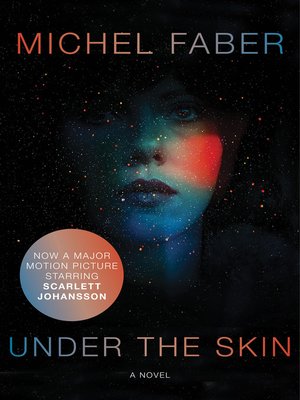"Is that not always the case? Given any two people in a relationship, one will always love more, the other less. Right?"
I haven't yet figured out how I feel about
Hausfrau, by Jill Alexander Essbaum. It's complicated. I don't like Anna. I don't like her at all. I don't feel a bit of sympathy for her. I'm also slightly troubled by the fact that I don't feel for her. I don't thinks she's sad; I think she's stupid. I want to slap her. Yet. There's something compelling about the inner drama Anna creates (and she does create it, all by herself).
The titular housewife is Anna, an American ex-pat married to a Swiss banker, living just outside of Zurich with their three children. Anna is bored or possibly depressed — although to me she seems affectless — so she goes to therapy and has affairs.
A little of this, a little of that
According to some booksellers,
Hausfrau is for readers of Claire Messud and Mary Gaitskill. I've never read Gaitskill, but I can see the comparisons to Messud's
Woman Upstairs, though I don't quite agree with them. Messud's novel was famously about an unlikeable character, though I liked her quite a bit, certainly more that I like Anna (whom I don't like at all). Messud's character also had my respect, for trying, for engaging, for being an interesting, deep, thoughtful, and honest person. Essbaum's Anna has none of that; she's just boring, and I can't decide if that's a novelistic flaw or if that's the bloody point.
It's "
Madame Bovary meets
Fifty Shades of Grey." I can't speak to
Fifty Shades per se, but I can say
Hausfrau offers some steamy scenes. Part of me thinks they're entirely gratuitous, but hell, sex is part of life, why shouldn't those scenes be included? Do these scenes contribute to the development of Anna's character? No, they don't let me know her any better. But again, maybe that's the point. The influence of
Madame Bovary, however, is obvious. But Emma has gained my sympathy over the years; Anna, to whom I should be able to relate on some level (marriage, child, mother-in-law, transplanted residence, living in a second language), leaves me cold.
It "recalls Marguerite Duras's
The Lover and Anita Brookner's Hotel du Lac." I haven't read either, but it seems like a bit of a stretch, particularly as Duras experimented with form.
Hausfrau gives us scenes from psychotherapy. Anna is completely inside herself; other people barely register on her.
"For readers of
Gone Girl and
The Girl on the Train." Maybe. I dunno.
And don't forget
Anna Karenina. Hausfrau Anna arguably shares more similarities with Tolstoy's Anna than with Flaubert's Emma.
According to
Book Riot, "the novel itself feels more like the heir apparent to
Dept. of Speculation by Jenny Offill." But Offill's character is highly sympathetic and observant; the novel is meditative. Anna on the other hand is merely flat.
The rest of it
The language is lovely.
That morning's German lesson left Anna pensive. The German language, like a woman, has moods. On occasion they are conditional, imperative, indicative, subjunctive. Hypothetical, demanding, factual, wishful. Wistful, bossy, of blunted affect, solicitous. Longing, officious, anhedonic, pleading. Anna tried to make a list of every mood she's ever been in but ran out of words before even half of her feelings were named.
The ending is inevitable. There's no other way for it to end. It's easy to see it coming. In principal, it is the perfect ending. In practice, the lead-up is a little over-wrought, and even in all Anna's emotionlessness it's too emotional, somehow out of step with the rest of the novel.
Reviews
The Frisky:
"What I enjoyed the most about the first two-thirds of the novel was that Anna was a fairly ordinary woman with some serious emotional complications, but who wasn’t a mustachioed supervillain or an anti-hero – just a woman with lower-than-average ethics in a life situation that would be genuinely difficult for almost anyone."
The Guardian:
"I liked the fact that Essbaum gives us no sweeteners in the matter of Anna’s character. She is difficult. She is boring. She is narcissistic. She is so very
sad."
The Independent:
"That, in the end, is the subversive thing about Anna: not her libido or her secret affairs, but her refusal to feel quite as copiously as women are expected to, her refusal to make herself likeable."
Excerpt.
Make no mistake: everything has a variant. Like versions of truth, like versions of love, there are versions of sleep. The deepest sleep is meant only for children and perfect fools. Everyone else must pay each night her restless due.











